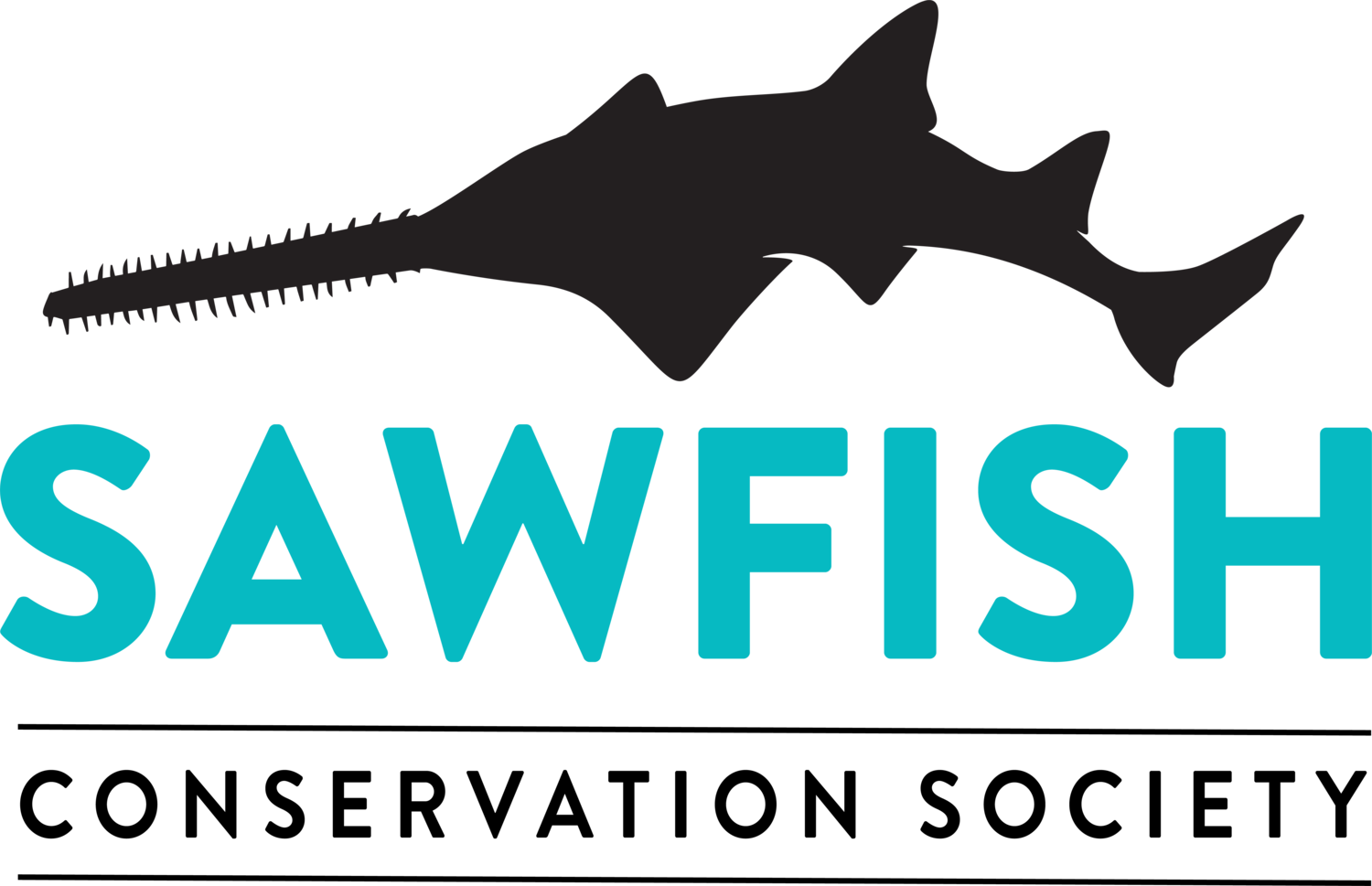First Nation-Wide Survey Shows Hope for Sawfishes in Mexico
Stage I of the first-ever survey for sawfishes in Mexico
(and in fact, the first research project ever devoted to this threatened group
of fishes in the country) was just completed by Océanos Vivientes casting a grey shadow on the outlook for sawfish conservation
in the country… But a new ray of hope just emerged!
 |
| Personnel of Project
Pristis Mexico interviewing fishermen during the nation-wide survey. |
Through its “Project
Pristis Mexico” (Proyecto Pristis
México in Spanish), personnel of Océanos
Vivientes, a Mexican NGO devoted to the research and conservation of sharks and
rays, visited 71 fishing locations along the Pacific, Gulf of Mexico, and
Caribbean coasts of Mexico. During a survey
that involved driving over 10,500 km and talking to over 800 fishermen, Océanos Vivientes interviewed more than 250
fishermen who had witnessed encounters with either the smalltooth (Pristis pectinata) or largetooth (P. pristis) sawfishes.
“The results of the first stage of this project offered a
worrying panorama for sawfish conservation” stated Ramón Bonfil, Executive
Director of Océanos Vivientes, and PI
of Project Pristis Mexico. “Most
fishermen reported never having seen a sawfish dead or alive, and those who had
were mostly old fishermen on the 60-70 year old range, an indication of how
long ago sawfishes became rare in Mexico” he added. However the most worrying result
was that the scientists could not find substantiated reports of live specimens anywhere
in the country. A small number of fishermen on both coasts reported having seen sawfishes either a few months or a few years ago, but there was no way to
scientifically confirm these claims (such as photographs).
 |
| Océanos Vivientes scientists measuring a sawfish rostrum. |
Despite this gloomy outlook, Océanos Vivientes remained hopeful that somewhere, someone would report a live specimen through the communications network they had built during the
four months they spent in the field. “Our hopes and hard work were rewarded
yesterday morning, when the first confirmed report of a live smalltooth sawfish came to us through a phone call from a fisherman”, Bonfil remarked.
 |
| Fisherman reading information poster distributed
by Océanos Vivientes throughout the country. |
The first smalltooth sawfish seen in Mexico since 2005 (the team's interview surveys confirmed that the last report of this species in
Mexican waters was caught in Tamaulipas state in 2005) was accidentally caught in a
snook gillnet in the State of Veracruz by fisherman Constantino Correa, who
swiftly reported the finding to Océanos
Vivientes. The sawfish, a juvenile female 1.54 m long, was kept alive,
measured and photographed by the fisherman, and the information they collected was sent to the scientists.
This was made possible thanks to the grassroots work that Océanos Vivientes has carried out around the country in recent months.
“This important finding means that there are still a few sawfish in Mexico and that
we must intensify efforts to protect them and help their populations recover and
be again as plentiful as they were 60 years ago” said Bonfil.
 |
| The female smalltooth sawfish (Pristis pectinata) found alive in Veracruz state. |
The discovery of this sawfish is an event of enormous
significance for the conservation outlook of sawfishes. It crowns the efforts
that Project Pristis Mexico has devoted
over the last 6 months, and shows that contrary to previous assumptions, sawfish are still present in Mexico. However, it is likely that they are very close to local
extinction, which means that both government and society at large need to
rapidly increase efforts and make more resources available for the conservation
and protection of sawfishes in Mexico. Having definitive evidence that there
are still sawfish living in Mexico means there is still a chance that wild
populations could be adequately protected and brings hope for their long-term
recovery.
Personnel from the Veracruz Aquarium collected the juvenile
sawfish and took it to their facilities where it is still in recovery and
under observation. It is hoped that a properly planned captive reproduction program
can be developed in the future (once a male of the species is found and brought
to the same aquarium).
The second stage of Project
Pristis Mexico, to be launched as soon as new grants are obtained, plans to
expand surveys to other parts of the country and locations that could not be
visited before. However the most important new aims are to actively look for
sawfishes in specific locations identified through Stage I of the project,
launch a tracking program using satellite tags, and involve the fishing communities
in the protection of sawfishes and their coastal habitats in order to guarantee
the recovery of the populations.
 |
| Dr. Ramón Bonfil giving an environmental
education talk about sawfishes to a group of fishermen. |
For more information visit Proyecto Pristis Mexico Facebook page at https://www.facebook.com/ProyectoPristisMexico/.
